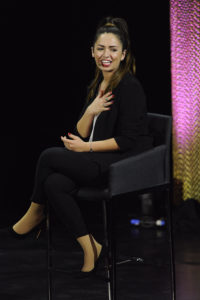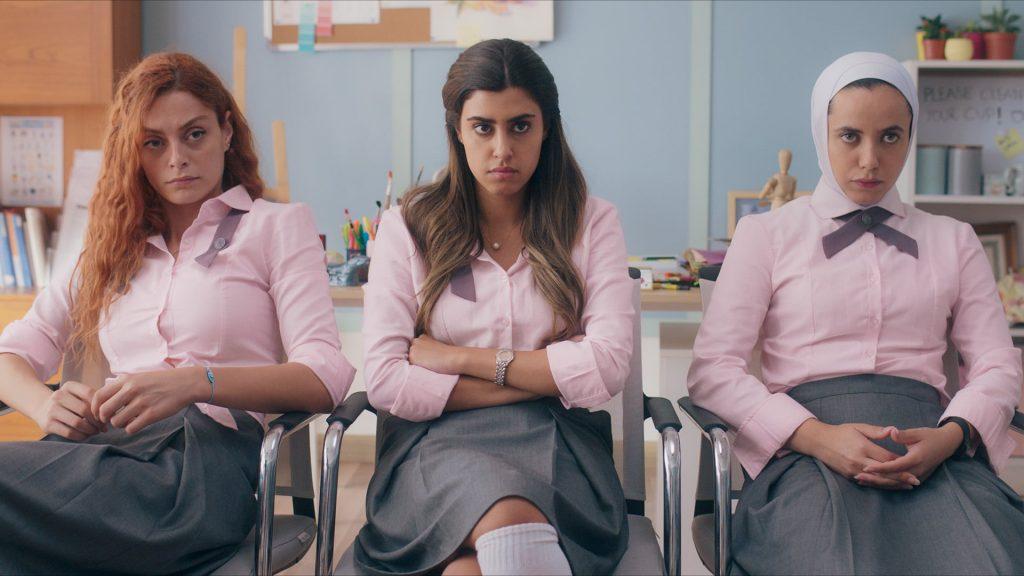São Paulo – On Thursday (12), the Netflix streaming platform launched its second original Arab series, “AlRawabi School for Girls,” a youth drama featuring an Arab female-only cast and crew. The series was written and directed by Jordanian Tima Shomali in collaboration with compatriot screenwriter Shirin Kamal. The series is already available in 32 languages.

Director Tima Shomali is known for depicting the perspective of contemporary Arab women, using humor to address their issues. In an interview with the Saudi Arab News website, she spoke about the series. “This age group has so many stories, and their secrets, their insecurities, their relationships, their loves, have always been a mystery. I wanted to give a small glimpse into social issues such as cyberbullying, the gap between the families and their daughters, and the gap in social conversation [about these topics] more broadly,” she said.
The Netflix series narrates the story of a group of teenage girls who are intimidated and bullied. They decide to hatch a plot of revenge. To Arab News, Shomali highlighted the series brings a female storytelling perspective. “Usually, female characters are portrayed from the perspective of how a man sees these women,” she said, noting that every department involved in the series, from cinematography to costumes, brought their feminine touch to tell the story.
Read more:
- Second Netflix Arab TV Show to have full female cast
- Seven films to premiere in Arab World Film Festival
- Netflix debuted 1st Arabic original show, ‘Jinn’
The young cast is headlined by Andria Tayeh, Noor Taher, Joanna Arida, and Yara Mustafa. Rakeen Saad, a friend of Shomali, stars as Noaf. The idea is for the series to show an honest portrait of Arab teens and youth to a worldwide audience. “My purpose is to help girls to stand up and talk because (we) are taught to stay quiet,” said Shomali, who takes part in international initiatives on behalf of women.
In an interview with Arab News, the director mentioned Brazil. “My hope for this show to go from a local audience to an international audience, because really the struggle of the girls at these ages, no matter where we are from, are the same. Hopefully, someone from Saudi Arabia or Jordan relates to one character, and another one from Brazil or the US relates to another character,” she said.
Translated by Elúsio Brasileiro




